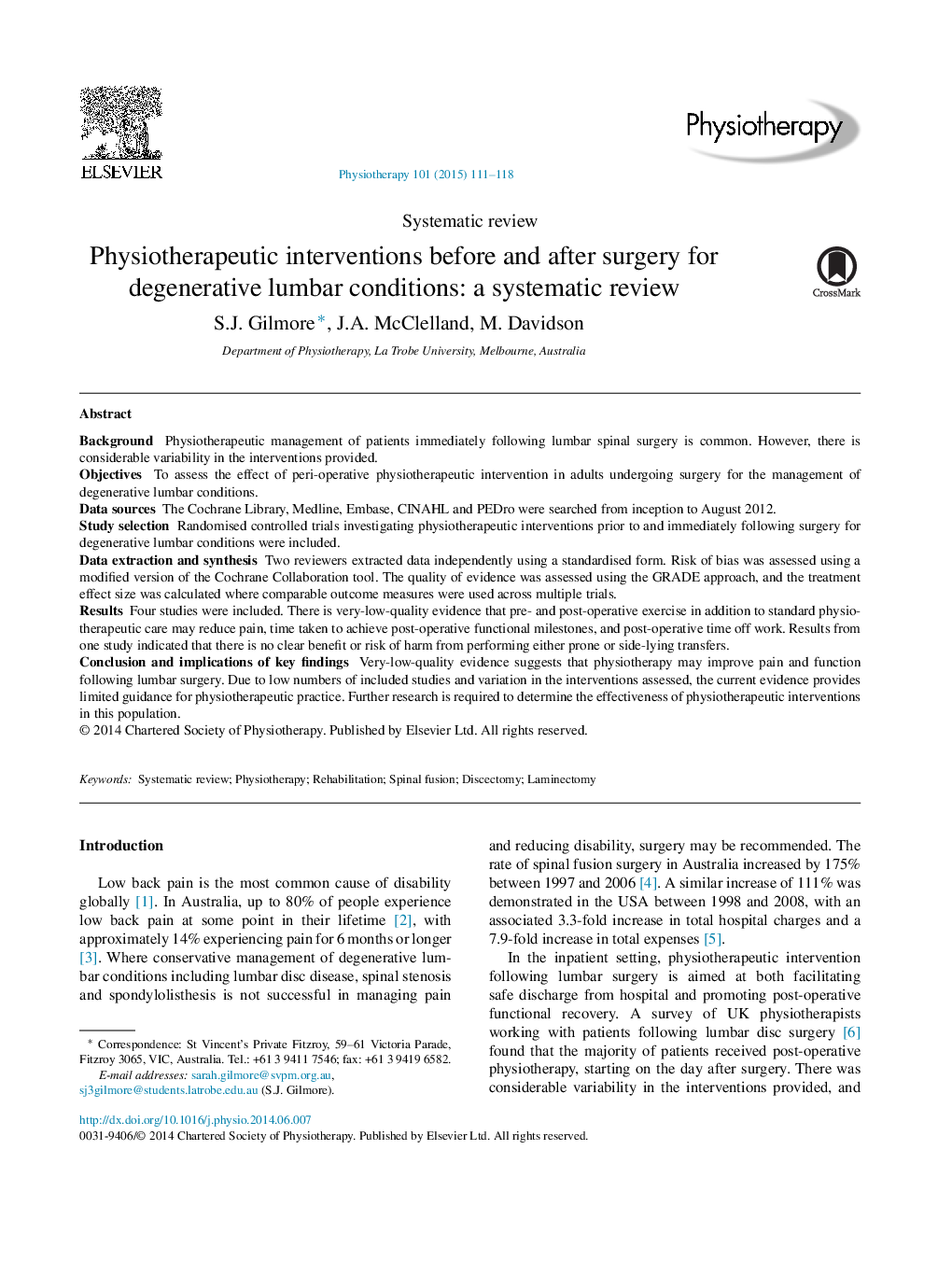| Article ID | Journal | Published Year | Pages | File Type |
|---|---|---|---|---|
| 5865103 | Physiotherapy | 2015 | 8 Pages |
BackgroundPhysiotherapeutic management of patients immediately following lumbar spinal surgery is common. However, there is considerable variability in the interventions provided.ObjectivesTo assess the effect of peri-operative physiotherapeutic intervention in adults undergoing surgery for the management of degenerative lumbar conditions.Data sourcesThe Cochrane Library, Medline, Embase, CINAHL and PEDro were searched from inception to August 2012.Study selectionRandomised controlled trials investigating physiotherapeutic interventions prior to and immediately following surgery for degenerative lumbar conditions were included.Data extraction and synthesisTwo reviewers extracted data independently using a standardised form. Risk of bias was assessed using a modified version of the Cochrane Collaboration tool. The quality of evidence was assessed using the GRADE approach, and the treatment effect size was calculated where comparable outcome measures were used across multiple trials.ResultsFour studies were included. There is very-low-quality evidence that pre- and post-operative exercise in addition to standard physiotherapeutic care may reduce pain, time taken to achieve post-operative functional milestones, and post-operative time off work. Results from one study indicated that there is no clear benefit or risk of harm from performing either prone or side-lying transfers.Conclusion and implications of key findingsVery-low-quality evidence suggests that physiotherapy may improve pain and function following lumbar surgery. Due to low numbers of included studies and variation in the interventions assessed, the current evidence provides limited guidance for physiotherapeutic practice. Further research is required to determine the effectiveness of physiotherapeutic interventions in this population.
